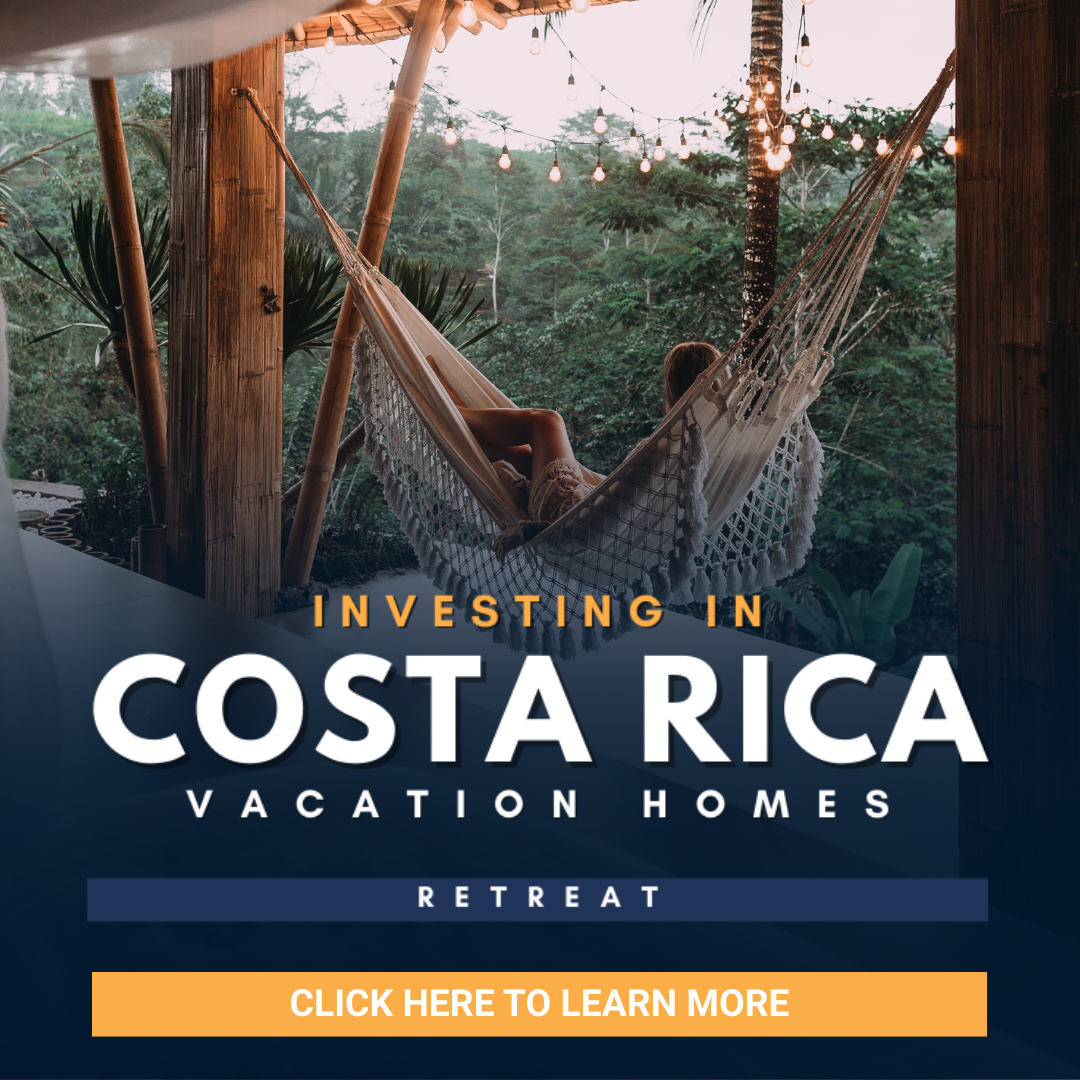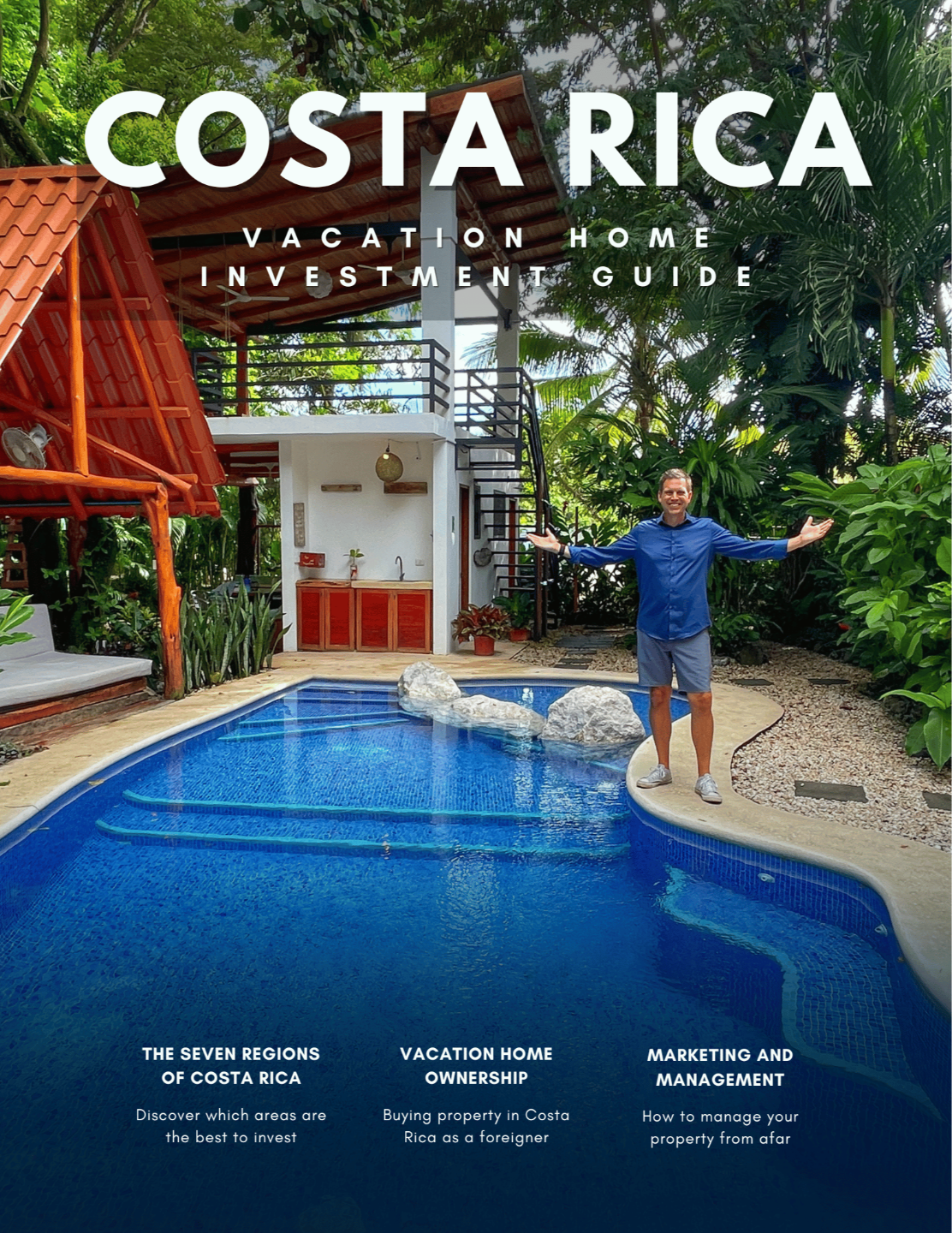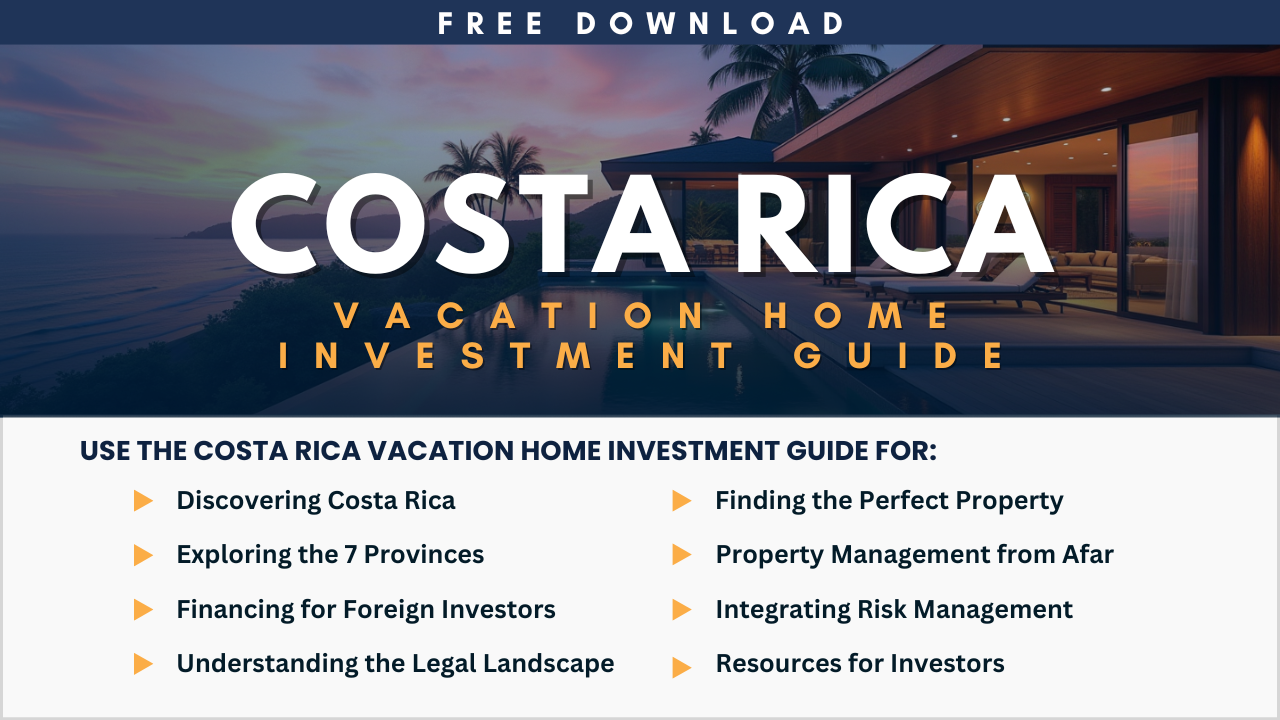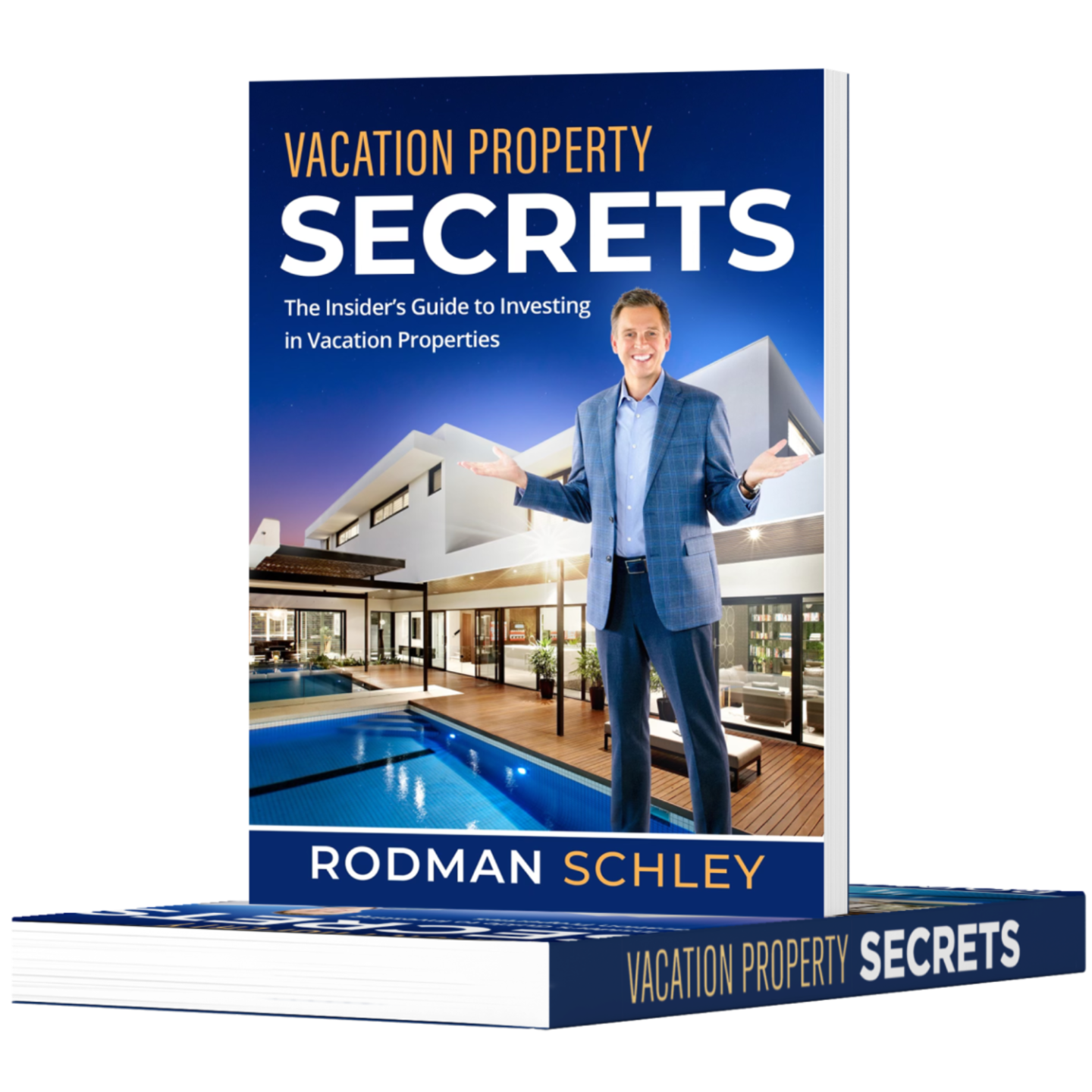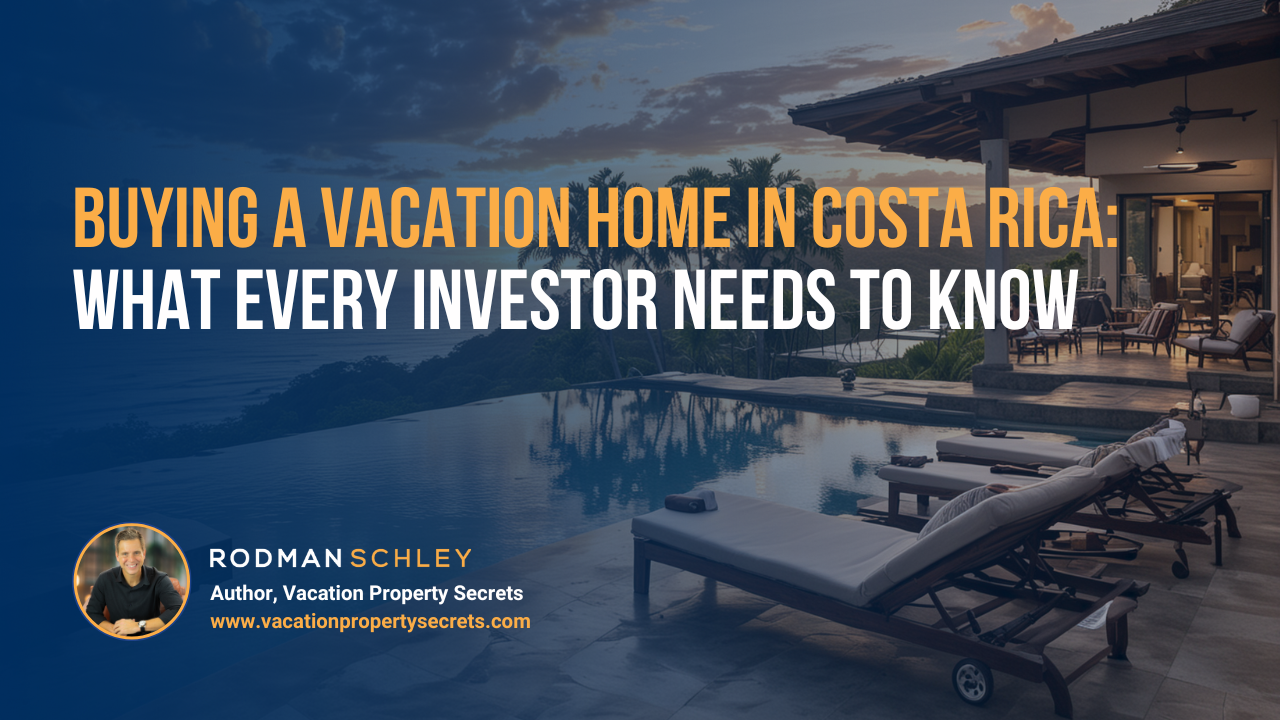
Buying a Vacation Home in Costa Rica: What Every Investor Needs to Know
Costa Rica is more than a dream destination—it’s a smart investment opportunity for those looking to own a vacation home in one of the most beautiful and stable countries in Central America. With its strong property rights for foreigners, year-round tourism, and incredible biodiversity, Costa Rica attracts thousands of real estate buyers every year.
But while the process is rewarding, it's not without its complexities. If you're thinking about buying a vacation home in Costa Rica, there are several things you need to know—from legal ownership and property types to rental income potential, cost of ownership, and how to avoid common mistakes.
This guide will walk you through what every investor should understand before making the leap.
1. Can Foreigners Really Own Property in Costa Rica?
One of the first questions I get from prospective investors is, “Can foreigners actually own property in Costa Rica?”
And the answer—much to many people’s surprise—is yes. Not only can foreigners legally own property in Costa Rica, but they can do so with the same rights and protections as Costa Rican citizens. Even better, you don’t need to be a resident or hold any special visa to purchase real estate.
This open-door approach to foreign ownership is one of the key reasons why Costa Rica has become a global hub for vacation home buyers, retirees, and international investors. You can own property in your own name or through a Costa Rican corporation, and the process—while different than in the U.S. or Canada—is straightforward when handled correctly.
But like any country, not all property is created equal, and there are important exceptions that you need to understand before signing a purchase agreement.
Maritime Zone Properties
Many of Costa Rica’s most breathtaking homes are perched right near the ocean—but if the property is too close to the water, it may fall within the country’s maritime zone. This refers to the first 200 meters of land measured from the high-tide line on both Pacific and Caribbean coasts.
This 200-meter zone is split into two parts:
-
The first 50 meters are public land, owned by the state. No private ownership, building, or exclusive use is allowed in this area. Think of it as a permanently protected strip of beach that belongs to everyone.
-
The next 150 meters can be developed, but only under a concession lease, which is similar to a long-term rental from the local municipality. This is called concession property, and it comes with several caveats. These leases are typically valid for 20 years and can be renewed, but they do not provide full titled ownership.
For foreign investors, there’s another restriction:
You may only own 49% of a concession lease unless you are a legal resident of Costa Rica. This means non-residents must partner with a Costa Rican citizen or a Costa Rican-owned corporation to hold concession rights—something that can get legally complicated if not structured properly.
Bottom line?
Beachfront homes with full title do exist—but they’re rare and highly sought-after. Many “beachfront” properties on the market are technically in the maritime zone, and you must confirm this before buying.
What To Do Instead: Buy Smart, Buy Titled
The key to buying with confidence in Costa Rica is simple:
Work with a qualified, independent Costa Rican real estate attorney—ideally one who specializes in working with foreign investors.
Before you go under contract, your attorney will:
-
Pull the property’s title records from the National Registry (Registro Nacional)
-
Verify whether the land is titled, concession, or part of a restricted zone
-
Review land use regulations and verify what you’re allowed to build or operate
-
Ensure the seller actually owns the property and that there are no liens, disputes, or unpaid taxes
-
Walk you through the safest ownership structure for your situation (personal name, corporation, trust, etc.)
In a country as beautiful—and as diverse—as Costa Rica, the best properties go quickly. But the best investments are the ones that are legally sound and built to last.
So yes, foreigners can buy property in Costa Rica. Just make sure you’re not just buying the view—make sure you’re buying the title behind it, too.
2. Best Places to Buy a Vacation Home in Costa Rica
One of the biggest advantages of investing in Costa Rica is the sheer variety of locations to choose from. Whether you're drawn to the surf, the jungle, the mountains, or the Caribbean coast, this small country offers a wide range of landscapes, cultures, and communities—each with its own personality and investment potential.
But with so many options, it can be overwhelming to figure out where to buy. The truth is, not all beach towns or mountain getaways are created equal when it comes to vacation home investment. Some places have reliable infrastructure and high rental demand, while others are better suited for personal use or long-term appreciation. The key is finding a location that aligns with both your lifestyle goals and your investment strategy.
Are you looking for strong short-term rental income? A peaceful place to retire part-time? A growing market with upside potential? Costa Rica has all of the above—you just need to know where to look.
Below are five of the top-performing and most promising regions for vacation home investors in Costa Rica. Each offers a unique experience, investment profile, and type of guest appeal.
Tamarindo
Located in Guanacaste on the Pacific Coast, Tamarindo is a lively surf town with excellent infrastructure and strong short-term rental demand.
Samara
A more laid-back beach town, Samara is ideal for families, wellness travelers, and long-term vacation renters. It's still emerging and offers great upside.
Santa Teresa
Known for its upscale bohemian vibe, Santa Teresa attracts luxury travelers, surfers, and remote workers. Property prices are higher but ROI can be strong.
Dominical & Uvita (Southern Zone)
Less touristy but stunningly beautiful, this area is ideal for nature lovers and investors seeking appreciation potential and a quieter lifestyle.
Puerto Viejo (Caribbean Coast)
More off-the-beaten-path, Puerto Viejo has a strong cultural vibe and is ideal for creative investors or eco-tourism development.
3. The Buying Process: Step-by-Step
Buying a vacation home in Costa Rica is an exciting journey—but it’s also a significant financial transaction in a foreign country with its own legal, cultural, and real estate norms. The key to a successful investment? Surrounding yourself with the right professionals from the start.
Here’s a breakdown of the key steps involved in the process:
Step 1: Hire a Real Estate Broker Who Understands Investment Fundamentals
Before you start browsing listings, it’s essential to partner with a qualified local real estate broker—not just someone who knows the area, but someone who understands investment fundamentals. You want an agent who can help you:
-
Analyze projected rental income
-
Compare cap rates and appreciation potential
-
Understand zoning and land use for short-term rentals
-
Identify high-demand neighborhoods with the best ROI
-
Avoid emotionally driven purchases and focus on smart strategy
Ideally, your broker should represent you as a buyer (not the seller) and be experienced in working with foreign investors. Ask for references, past client results, and insights into market data before committing.
Step 2: Hire a Real Estate Attorney
In Costa Rica, an attorney plays a much larger role than in many other countries. Your real estate attorney will:
-
Conduct a full title search through the National Registry
-
Review land use permissions (uso de suelo) and zoning
-
Verify permits, corporate structure, and tax compliance
-
Flag any liens, encumbrances, or ownership disputes
-
Draft and review all legal documents, including the purchase agreement
Note: The attorney must be a licensed notary public to officially transfer property ownership at closing.
Step 3: Make an Offer and Sign a Purchase Agreement
Once you've found the right property and your broker confirms it's priced competitively, your attorney will prepare a formal purchase offer. This usually includes:
-
The proposed purchase price
-
Terms and contingencies (inspection, due diligence, etc.)
-
An earnest money deposit, typically 5–10% of the purchase price
-
A specified due diligence period (usually 2–4 weeks)
Once accepted by the seller, this agreement becomes binding and sets the timeline for closing.
Step 4: Conduct Due Diligence
During the due diligence period, your attorney and broker work together to:
-
Verify the legal title and registered boundaries
-
Confirm that land use zoning permits your intended use (e.g., vacation rental, new construction, etc.)
-
Review permits, easements, and any local development plans that may affect the property
-
Ensure there are no legal claims, liens, or unpaid taxes
-
Conduct physical inspections if needed (foundation, utilities, septic, etc.)
This is your window to walk away if any red flags arise—so don’t skip it or rush through.
Step 5: Set Up a Corporation (Optional but Recommended)
Most foreign investors choose to purchase their property through a Costa Rican corporation (either an S.A. or S.R.L.). This allows for:
-
Liability protection
-
Simplified ownership transfer in the future
-
Easier inheritance planning
-
Streamlined utilities and property management
Your attorney can establish the corporation and ensure it's compliant with Costa Rican tax and corporate law. While optional, it’s highly recommended if you plan to rent the property or hold it long-term.
Step 6: Close the Deal
Once due diligence is complete and both parties are satisfied, your attorney will coordinate the closing:
-
Final purchase funds are transferred to a secure escrow account
-
The transfer deed is executed by a notary public
-
The property is officially recorded with the National Registry
-
You’ll receive a new title certificate, and the property is legally yours
Closing costs typically run 2.5%–3.5% of the purchase price and include transfer taxes, legal fees, notary fees, and registration costs.
Final Tip: Don't Navigate This Alone
This process is very manageable when you have the right people in place. A strong investor-focused broker and a skilled real estate attorney are your two most important allies. With their help, you’ll not only avoid costly mistakes—you’ll position yourself to buy a property that aligns with both your lifestyle vision and your investment goals.
4. How Much Does It Cost to Buy a Vacation Home in Costa Rica?
osta Rica offers a wide range of vacation home options—from budget-friendly condos to high-end oceanview estates—but prices can vary significantly depending on location, property type, and proximity to the beach. Whether you’re looking for a low-maintenance rental property or a luxury second home, it’s important to understand both the purchase price range and the ongoing costs associated with ownership. Below is a breakdown of typical price points and key expenses every buyer should plan for.
Prices vary widely depending on the location, size, and proximity to the beach.
-
Entry-level condos near the beach: $150,000 – $250,000
-
Single-family homes with rental potential: $300,000 – $600,000
-
Luxury villas or oceanview homes: $700,000+
Additional Costs to Budget For:
-
Legal fees: ~1.25–1.5% of purchase price
-
Transfer taxes and closing costs: ~2.5–3.5%
-
Corporate setup (if applicable): ~$1,000 – $2,000
-
Property taxes: 0.25% annually based on assessed value
-
HOA fees (if applicable): $100–$500/month
-
Luxury home tax (if applicable): Applies to high-end homes exceeding ~$250,000 construction value
5. Can You Earn Rental Income from Your Vacation Home?
Absolutely—and for many investors, rental income is one of the primary reasons they buy property in Costa Rica in the first place. With a booming tourism industry, year-round demand, and increasing interest from digital nomads, retirees, and adventure travelers, Costa Rica offers a compelling opportunity to turn your vacation home into a profitable income-producing asset.
Thanks to platforms like Airbnb, VRBO, and local property management companies, it’s now easier than ever to rent your home remotely, even if you don’t live in Costa Rica full-time. In the right location, with the right amenities and pricing strategy, your vacation home can generate significant cash flow—sometimes enough to cover all your expenses and still deliver strong returns.
However, like any market, success isn’t guaranteed. Not all towns, property types, or seasons perform equally, and first-time investors often overestimate revenue or underestimate costs. That’s why it’s essential to approach rental income with data, strategy, and realistic expectations.
Key Rental Income Considerations:
-
Occupancy Rate: Varies by location and season. Use AirDNA or talk to local property managers.
-
Average Daily Rate (ADR): Influenced by property size, amenities, and proximity to attractions.
-
Management Fees: Local managers typically charge 20–30% of gross rental revenue.
-
Tourism Taxes: As of 2021, short-term rentals must collect and remit a 13% value-added tax (VAT).
-
Insurance: You'll want coverage for liability, theft, weather, and natural disasters.
Tip: Build a conservative pro forma that accounts for 60–70% occupancy and all operating expenses. Don’t assume peak season performance all year.
6. Should You Use a Property Manager?
If you don’t live in Costa Rica full-time—and especially if you're new to vacation rental investing—the answer is a resounding yes. Hiring a reliable property manager isn’t just a convenience, it’s a strategic move that can make or break your investment.
While owning a vacation home in paradise sounds simple, managing it remotely is another story. Between guest check-ins, cleanings, maintenance issues, pricing strategies, emergency calls, and tax filings, the day-to-day responsibilities can quickly become overwhelming—especially if you're in another country or time zone. Even if you're an experienced investor back home, navigating these tasks in a foreign language and legal system adds an entirely new layer of complexity.
That’s where a professional local property manager becomes your greatest asset. The right manager will not only keep your home in excellent condition—they’ll help you maximize revenue, protect your reputation, and ensure your property operates smoothly year-round.
Whether your home is in Tamarindo, Santa Teresa, Samara, or Uvita, local expertise matters. Each region has its own rental rhythms, guest expectations, and service providers. Choosing someone who specializes in short-term rentals in your specific area is critical to your long-term success.
A good property manager can handle:
-
Guest communication and check-in
-
Cleaning and maintenance
-
Booking calendar management
-
Emergency response
-
Rent collection and tax filings
Look for managers who specialize in short-term rentals in your specific area and have a proven track record.
7. Ownership Structures: Should You Buy Through a Corporation?
One of the most important decisions you’ll make when buying a vacation home in Costa Rica isn’t just where to buy—but how to structure the purchase. In Costa Rica, it’s common for foreign investors to buy property through a legal entity such as a Sociedad Anónima (S.A.) or a Sociedad de Responsabilidad Limitada (SRL)—the local equivalents of a corporation or limited liability company.
This might sound like an unnecessary layer of complexity, especially if you’re used to buying property in your personal name back home. But in Costa Rica, purchasing through a corporation offers several strategic advantages. From reducing liability to simplifying resale and streamlining inheritance planning, the right structure can help protect both your assets and your investment timeline. For example, rather than transferring a deed, you could simply transfer corporate shares if you choose to sell—often a faster and more efficient process.
That said, corporate ownership does come with responsibilities. You’ll need to maintain annual tax filings, designate a local legal representative, and keep the entity in good standing to avoid fines or legal issues.
Ultimately, the best ownership structure depends on your investment goals—whether you’re buying for personal use, rental income, future appreciation, or all of the above. That’s why it’s essential to work with a qualified Costa Rican attorney or accountant who can help you choose the structure that aligns with your strategy and minimizes long-term risk.
Pros:
-
Personal liability protection
-
Easier inheritance planning
-
Simplified resale (by transferring corporate shares)
-
May offer better access to utilities and permits
Cons:
-
Requires annual tax filings and maintenance
-
You’ll need a legal representative and resident agent
-
Slightly higher up-front setup and admin costs
Tip: Consult with your attorney or accountant before deciding. The best option depends on your goals—personal use, rental income, or long-term holding.
8. Common Mistakes to Avoid
Even seasoned investors can make costly missteps when buying property in a foreign country. In Costa Rica, where the real estate process and regulations differ from what you might be used to, it’s easy to fall into traps that can delay your goals—or derail them altogether. Before you invest, make sure you're aware of these common mistakes and how to sidestep them with confidence.
Before you buy, make sure you avoid these common investor pitfalls:
-
Buying based on emotion without research
-
Failing to verify title or land use
-
Not budgeting for ongoing costs and taxes
-
Choosing the wrong location for your goals
-
Skipping local legal or professional help
-
Overestimating rental income
-
Ignoring resale or exit strategy planning
9. What to Look for in a Profitable Vacation Home
Not all vacation homes are created equal—especially when your goal is to generate steady rental income. The best-performing properties tend to strike a balance between location, amenities, and market demand. Whether you're buying an existing rental or looking to furnish and launch your own, understanding what makes a property stand out is key to maximizing occupancy and nightly rates.
If your goal is to generate rental income, look for:
-
Walkability to beach or town
-
2–3 bedrooms (ideal for families or couples)
-
Air conditioning and reliable Wi-Fi
-
Pool or outdoor living space
-
Strong online rental history (if resale)
-
Property manager already in place
-
Proven guest demand in the area
Bonus Tip: Homes with unique design, great photography, and strong reviews tend to outperform others even in competitive areas.
10. Is Now a Good Time to Invest?
Costa Rica continues to see steady demand from international buyers, digital nomads, retirees, and investors looking for diversification. With the rise of remote work and growing interest in lifestyle-forward investing, the country remains one of the top choices for vacation rental ROI, capital appreciation, and personal enjoyment.
While inventory is tight in certain markets, opportunities still exist—especially for those who are prepared, informed, and ready to move when the right property comes along.
Final Thoughts: Buy for Lifestyle, Backed by Strategy
Buying a vacation home in Costa Rica is more than an investment—it’s a chance to build a life that reflects your values, freedom, and vision for the future. But like any international investment, it requires clarity, due diligence, and the right guidance.
The good news?
You don’t have to figure it out alone.
Want Help Making a Smart Investment in Costa Rica?
I created the Investing in Costa Rica Vacation Homes class to help investors like you navigate the process with confidence.




